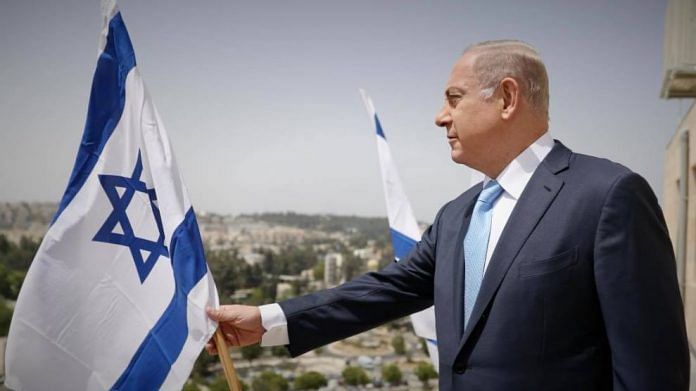Benjamin Netanyahu is not the first Israeli Prime Minister to face criminal investigation: but charges against the PM are first a public matter, and only secondly a legal matter. Democracy is floundering in Latin America, with Venezuela and Honduras as prime examples—and yet, the Trump administration congratulated the Honduran President’s reversal of his election loss. Meanwhile, the Prime Minister of Ethiopia shocked his country by promising optimistic reforms only to retract them as a “mistranslation”.
Netanyahu’s fate rests in the hands of Israel’s politicians
Netanyahu is implicated in several investigations, writes Shmuel Rosner in the New York Times. He is embroiled in a corruption scandal, and is also suspected of illegally receiving gifts and negotiating deals. But will he be forced out his position because of his legal troubles? Rosner argues that it might not be so.
“When a police recommendation is followed by a decision to indict the prime minister, the legal water gets murky,” he writes.
“Charges that involve the prime minister are first a public matter, and only second a legal matter. The public elected the prime minister, so the public — or its representatives — should decide when it is time for him to go. They are entitled to decide to let the legal process run its course. They are also entitled to decide that Mr. Netanyahu must go for a reason other than a purely “legal” one — such as he’s doing a bad job or is hurting their party.”
What is the way forward, then? “In such case, the politicians must own this decision. If they fire him it is not because he is morally unworthy of the job (he is innocent until proven otherwise), not because he is corrupt (corruption is proved only in court), not because he is legally bound to go (he is not). If they fire him it is because they no longer believe he is the best prime minister for Israel,” writes Rosner.
How the world is failing democracy in Honduras
The controversial elections in Honduras shouldn’t be lauded, especially when Venezuela is being condemned, the Washington Post editorializes.
The US Sate Department issues a statement congratulating Juan Orlando Hernández for winning an election that looked suspiciously engineered, instead of criticizing him for not conducting the elections in a free and fair manner. “But the practical effect was to confirm Mr. Hernández’s control over a government that depends on hundreds of millions of dollars in U.S. aid,” the Post writes.
“The badly flawed process could deepen instability in the country; if so, more Honduran migrants will head for the United States. Meanwhile, the chances that independent monitors from the OAS will be able to check abuses in the 18 elections scheduled in the Western Hemisphere this year have been damaged. If an anti-American candidate is proclaimed the winner in some other Latin nation, and other governments refuse to respect evidence of irregularities, the Trump administration will have only itself to blame.”
Ethiopia’s existential crisis
Hailemariam Desalegn, Ethiopia’s Prime Minister, surprised his country by declaring that he would free political prisoners and shut down a torturous prison, giving the masses hope that a new day was dawning on an oppressive regime. Within hours, however, his remarks were clarified as a “mistranslation”. “One fact remains clear, however,” write Mohammed Ademo and Jeffrey Smith in Foreign Policy. “The status quo can no longer hold.”
“Despite the outward veneer of growth and stability, all is not well in Ethiopia,” they write, denouncing the image of the country as a “stable oasis in the troubled Horn of Africa region.” The country has massive unemployment, high public debt, and is witnessing rising inflation. The border dispute between the Oromia and the Somali region has left hundreds of people dead and thousands of people displaced.
In addition, there is an internal power struggle within the Ethiopian People’s Revolutionary Democratic Front (EPRDF) which has been in power since 1991. Prominent opposition leaders, activists and journalists are being unjustly detained as political prisoners. “Ethiopia’s leaders should immediately begin dismantling the machinery of oppression by repealing and replacing those laws, which have been routinely condemned for failing to meet international standards.”
“In his Jan. 3 statement, Desalegn cited the need for social healing as a reason for the pardon of some prisoners. It was a historic moment. But for it to translate into real change, the country’s leaders must resolve to release all political prisoners without delay or preconditions; fully implement the country’s rarely applied but progressive constitution; ensure the independence and impartiality of the judiciary; end unchecked impunity for corrupt officeholders and security officials; and hold to account those responsible for the death and displacement of hundreds of Ethiopians,” they write.
“No one expects change in Ethiopia to occur overnight. The reform process will undoubtedly be lengthy and fraught with potential obstacles. But to rescue the country from the undue weight of its own repression, EPRDF leaders have no choice but to change course.”



